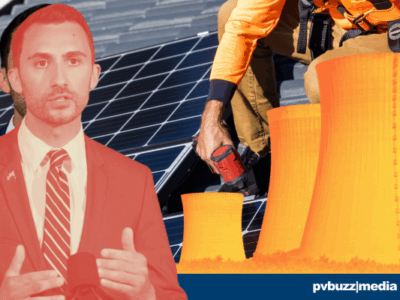SYDNEY, Australia | The Climate Institute —
The expected announcement this week on Australia’s post-2020 carbon pollution reduction target is a critical opportunity for the Abbott government to better reflect public sentiment on climate action, renewables and pollution regulation, said The Climate Institute as it released its annual review of public attitudes on climate change and its solutions.
“This week’s decision on Australia’s initial post-2020 climate commitment comes as nearly two thirds of Australian believe that the ‘Abbott government should take climate change more seriously’, a surge of 6 per cent from last year,” said John Connor, CEO of The Climate Institute.
This week, both Cabinet and the Coalition party room are expected to consider Australia’s initial post 2020 pollution reduction commitment to be made ahead of international climate negotiations in Paris later this year.
“Despite a year which has seen renewable energy targets wound back, and attacks on wind power, support for both solar and wind in Australians’ preferred energy mix has grown.”
“Most (84 per cent, up 2 points) prefer solar amongst their top three energy sources, followed by wind (69 per cent, up 5 points). Gas and nuclear both crashed 7 points to 21 and 13 per cent respectively, with nuclear and coal now tied as least preferred.”
“Support for regulating and limiting carbon pollution is very strong with two in three (67 per cent) agreeing governments need to regulate carbon pollution and only 9 per cent disagreeing.”
“The core element of the government’s ‘Direct Action’ plan, the taxpayer backed Emissions Reduction Fund, is unpopular with over three quarters (76 per cent) agreeing that policy should shift responsibility for pollution reduction to the polluters not taxpayers.”
Climate of the Nation 2015, where possible, benchmarks public attitudes against similar research from the last three years. This year’s results are based on a nationally representative online survey conducted by Galaxy Research 27th-29th July 2015 among 1,016 Australians nationally aged 18 years and over.
Other key findings include:
– The large majority (71 per cent) of Australians agree that it is inevitable that Australia’s current coal fired generation will need to be replaced. A similarly large majority (72 per cent) of Australians agree that governments need a plan to ensure the orderly closure of old coal plants and their replacement with clean energy. Only 7 per cent disagree.
– Two in three (65 per cent) Australians say that reducing the investment in wind farms and householder solar power is the opposite of what is needed. Overall 39 per cent strongly agree with this statement. Only 11 per cent disagree.
– 69 per cent agree that ignoring climate change is simply not an answer, as it increases the risk of the situation getting worse, up 5 points from last year.
– Like last year, a strong majority (59 per cent down 2 points but above 2013’s 58 per cent and 2012’s 52 per cent) think that Australia should be a world leader in finding solutions to climate change.
– A large majority (70 per cent, same as last year but up from 64 per cent in 2012) think that climate change is occurring with 89 per cent (up 5 points) of those accepting humans are at least partly the cause.
– A similar 71 per cent (up 1 point) think that that tackling climate change creates new opportunities in renewable energy.
– 59 per cent agree that the seriousness of climate change is under-estimated by government, while 16 per cent disagree.
Connor said: “Interestingly, Australians aren’t looking to other countries to compare pollution reduction targets.”
Only 11 per cent agree the post 2020 pollution reduction targets should be based on what ‘a similar resource country like Canada’, with UK and Germany (5 per cent), China (3 per cent) and US (2 per cent) much lower. Half (51 per cent) say it should be based on the science of climate change with 27 per cent unsure.
“The ALP’s recent renewables goal and climate announcements appear to better reflect public sentiment. But their policy detail, and its communication, will be important as there are questions, almost half (47 per cent) think that ALP policies will ‘just increase electricity prices and not do much about pollution’.”
“Our research also shows the carbon tax spectre still has some sting but perhaps less than would be expected. A third (36 per cent) agree they won’t vote for the ALP because they will bring back the carbon tax, with a quarter (24 per cent) neutral and 28 per cent disagreeing.”
“The government and the opposition have an opportunity to join mainstream Australian attitudes with climate commitments and policies which can limit carbon pollution, encourage renewable energy and clean up our energy system,” concluded Connor.














Comments